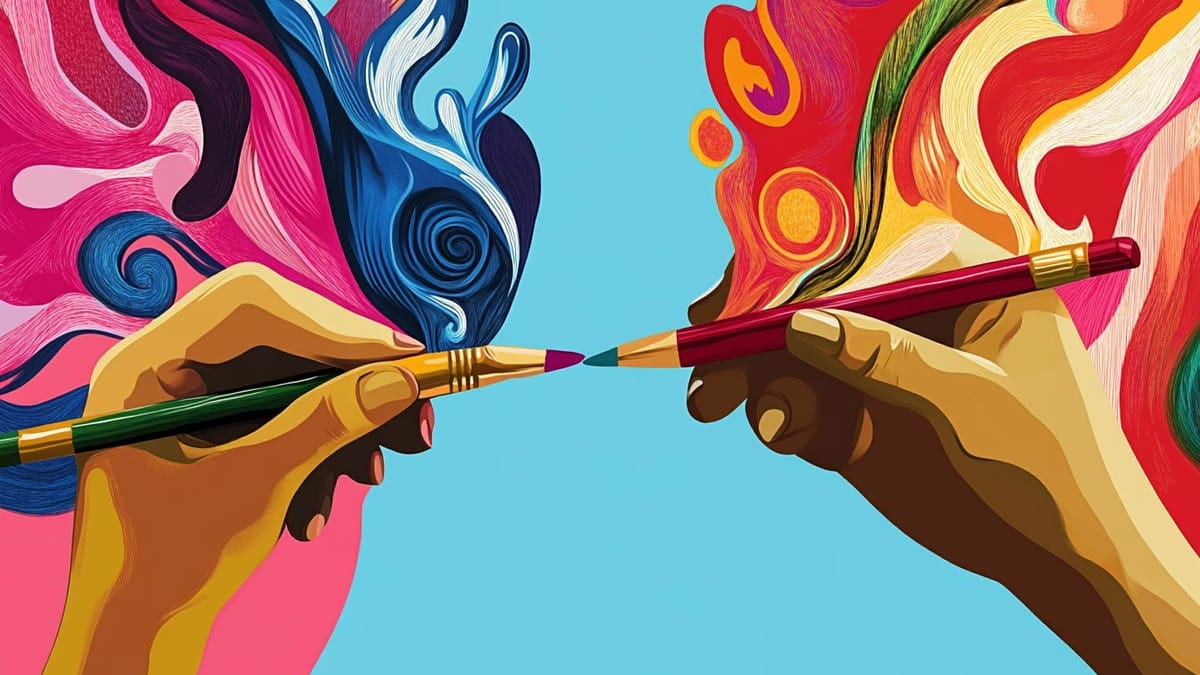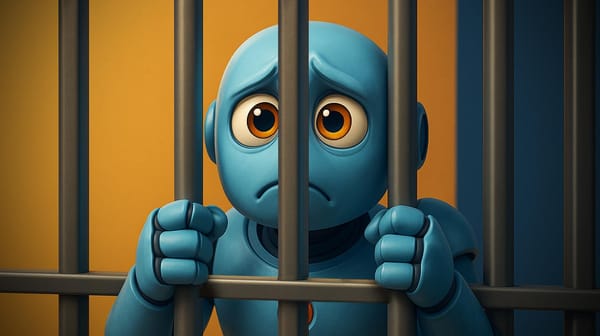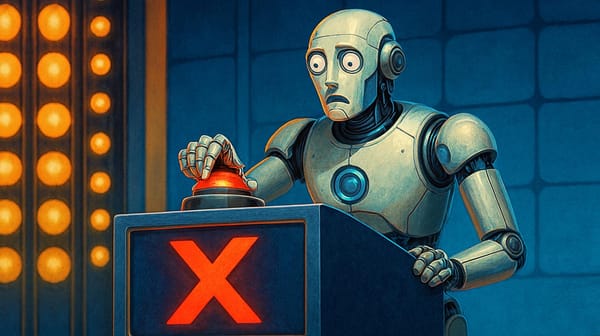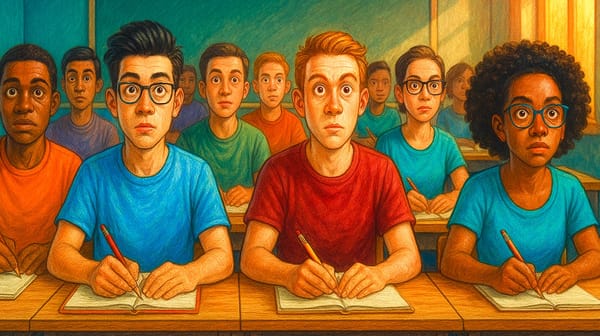Marketing Killed Creativity. AI is Bringing it Back.
Marketing departments that once thrived on creative intuition now run on dashboards. But next-generation brands are thinking different.

Walk into any marketing department today and you'll find a scene that would be unrecognizable to advertisers of the past: walls of screens displaying real-time metrics, marketers hunched over datasets, and AI tools churning out endless variations of content. The creative brainstorms and breakthrough campaign moments that once defined marketing have been replaced by an endless stream of analytics and optimization.
Browse through today's marketing job postings and you'll find "creative director" positions that read more like technical specifications. Required skills: marketing automation, data visualization, SQL queries, machine learning fundamentals. Yet the transformation has been so gradual that few noticed marketing's soul slipping away.
Marketing departments that once thrived on creative intuition and deep customer understanding now run on dashboards and algorithms. The pressure to measure everything has created an obligation to measure everything, turning marketers into data analysts who occasionally think about messaging.
The roots of this transformation trace back further than the current AI revolution. The seeds were planted in the 1990s when digital marketing first made customer behavior trackable. Like scientists discovering a new particle, marketers suddenly had the ability to measure things that were previously invisible. But this newfound power came with an unexpected cost: the more we could measure, the less we seemed to imagine.
Marketing's creative spirit didn't die overnight. It eroded slowly, optimization by optimization, metric by metric, until one day we looked up from our spreadsheets and realized something was missing. The wild ideas, the emotional connections, the breakthrough moments that once defined great marketing had been pawned for data-driven MarTech tools and an obsession with revenue attribution.
But beneath the surface, a new pattern is emerging.
As AI democratizes access to marketing technology, tools won't be the competitive advantage. Soon, every brand will wield the same superhuman powers for research, data analysis, hyper-personalization, and agentic automation. From the garage startup to the global enterprise, the playing field will be remarkably level. And what will separate winning brands from the rising tide of mass marketing mediocrity? It isn’t technical prowess – it’s creative intelligence.
This isn’t the creativity of advertising’s golden age, when a brilliant tagline alone could catapult a brand into the cultural zeitgeist. Today's marketing demands a new kind of creative thinking that combines strategic insight with technical fluency. Call it the rise of the creative technologist.
These new marketers might start their day using AI to analyze thousands of customer conversations, extracting patterns no human could spot. But it's their creative interpretation of these patterns that matters – seeing opportunities in the data that an algorithm would miss. They might use one AI tool to generate hundreds of campaign concepts, then deliberately constrain its parameters to force unexpected combinations. They're as comfortable fine-tuning a language model to match their brand voice as they are crafting the strategic narrative that guides it.
In B2B marketing, where complex relationships often defy automation, this hybrid creativity proves especially powerful. While AI handles routine communications, creative technologists focus on architecting the customer journey – designing moments of surprise and delight. They might combine AI-powered market research with visualization tools to transform dry data into engaging stories, making elaborate solutions feel accessible and human.
The implications reach beyond individual campaigns to reshape entire marketing organizations. Forward-thinking companies are building teams that mirror this evolution, pairing data scientists with strategic creatives who understand both the capabilities and limitations of their tools. They're discovering that the future of marketing lies not in choosing between art and science, but in the combined strength of both.
Marketing may have lost its soul for a moment. But creativity isn’t dead—it’s evolving. As AI commoditizes basic marketing functions, original thinking will become the true superpower. And differentiation will be the ultimate competitive advantage.
The most successful marketers of tomorrow won’t be dedicated technicians or pure creatives. They’ll be renaissance thinkers who can harness data to amplify creativity rather than replace it. When everyone has access to the same AI tools and optimization techniques, the only thing that remains uniquely human is the ability to think differently.
The pendulum that swung so far toward data is finally finding its balance. And in that balance lies the future of marketing—one where creativity isn’t just permitted, but essential.






